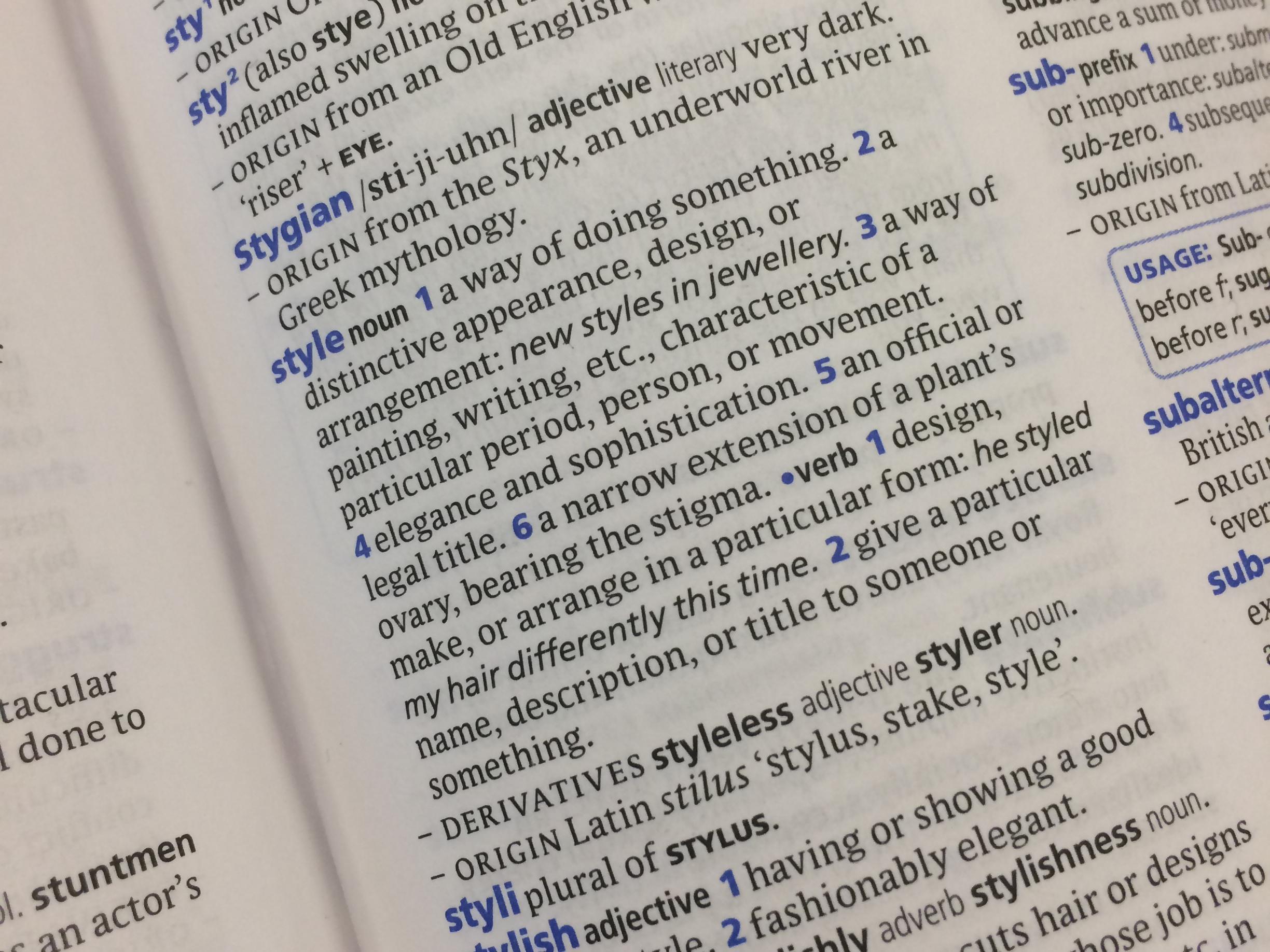Getting on the case: when the time is right to change a publication’s house style
Consistency is important, but this needs to be balanced with staying current – which is why The Independent is making a change


Your support helps us to tell the story
From reproductive rights to climate change to Big Tech, The Independent is on the ground when the story is developing. Whether it's investigating the financials of Elon Musk's pro-Trump PAC or producing our latest documentary, 'The A Word', which shines a light on the American women fighting for reproductive rights, we know how important it is to parse out the facts from the messaging.
At such a critical moment in US history, we need reporters on the ground. Your donation allows us to keep sending journalists to speak to both sides of the story.
The Independent is trusted by Americans across the entire political spectrum. And unlike many other quality news outlets, we choose not to lock Americans out of our reporting and analysis with paywalls. We believe quality journalism should be available to everyone, paid for by those who can afford it.
Your support makes all the difference.As a sub-editor, one is used to the caricature of being a pedant above all else, the arguments in the newsroom centring over not the facts of a story but whether a hyphen was necessary, or whether a word, spelling or formulation was in keeping with “house style”, manifest in a “style guide”.
Every newspaper and publication – ones worth their salt, at any rate – has such a style guide, a sturdy tome seemingly there since antiquity that sets out fully and finally our own rules in copy. Editors, writers and sub-editors refer to it to ensure what they produce is consistent and correct.
It can seem trivial, but style is important: it is something The Independent takes seriously and always has done. Critics might have assumed that the closure of our print version in 2016 and shift in emphasis to digital might have meant that our style guide went out of the window along with other accoutrements of the inky age, but this is not so. The newsroom to this day teems with questions, arguments and (from me) rulings about whether adviser is spelt with an e or o (e), whether we cap up the s in south London (no); when we apply honorifics (Mr/Ms – yes in news stories and editorials, but not Voices or features, since you ask); whether it’s Burma or Myanmar (we have recently switched to the latter); and much else besides.
More than that, readers demand it. They will take us to task if we get it wrong, as Mea Culpa – our popular weekly column curated by my colleague John Rentoul – amply demonstrates. Here, readers get the chance to answer back if we have mixed our metaphors or wandered into other minefields of language. We know you care that we get things right, and we will continue to strive to that end.
Maintaining a style does mean striking a careful balance between being consistent and keeping up with the times. The Independent’s own guide, though tweaked and modified down the years, is little changed since 1998 when, for example, there was not yet a Scottish government and the internet was in its infancy. Style points can become antiquated, and the sensible publication will adapt, evolve and update.
One such style point is our convention of capping up certain words and titles – the Government (but only the present UK one led by Theresa May, not past governments, nor those of other nations); Parliament (again, only the UK one); the Prime Minister (the person current and former, but not the office or the aspiration held by Jeremy Corbyn); cabinet ministers such as the Education Secretary (but not junior ones such as the schools minister); the President (national and supranational, but not quite stretching to regional entities that, inconveniently for us, also call their leaders president; and any other officials who are currently capped up.)
From now on The Independent will lowercase these words. It will be Theresa May, the prime minister; Donald Trump, the US president (although President Trump, as here it is in effect an honorific, not a job title); the Israeli prime minister Benjamin Netanyahu; Diane Abbott, the shadow home secretary; and so on. No longer will readers (or indeed writers) scratch their heads over which of these presidents – Emmanuel Macron, Jean-Claude Juncker, Carles Puigdemont and Sal Brinton – gets the cap treatment (two of them under the previous style but, dear reader, you no longer need to worry which two). No longer will the UK Government, by dint of its cap G, boast an implied superiority over other nations’ governments; nor will certain senior US politicians (such as the Secretary of State) get that extra boost denied to counterparts elsewhere.
We hope this simple act of lowercasing a letter will iron out anachronisms and help us, and you, to avoid potential pitfalls of confusion. A change in style, far from being a small matter snuck under the radar, is something we expect readers to notice. We know you care that we get it right – you tell us when we don’t, and long may that symbiotic relationship between reader and paper continue.
Join our commenting forum
Join thought-provoking conversations, follow other Independent readers and see their replies
Comments